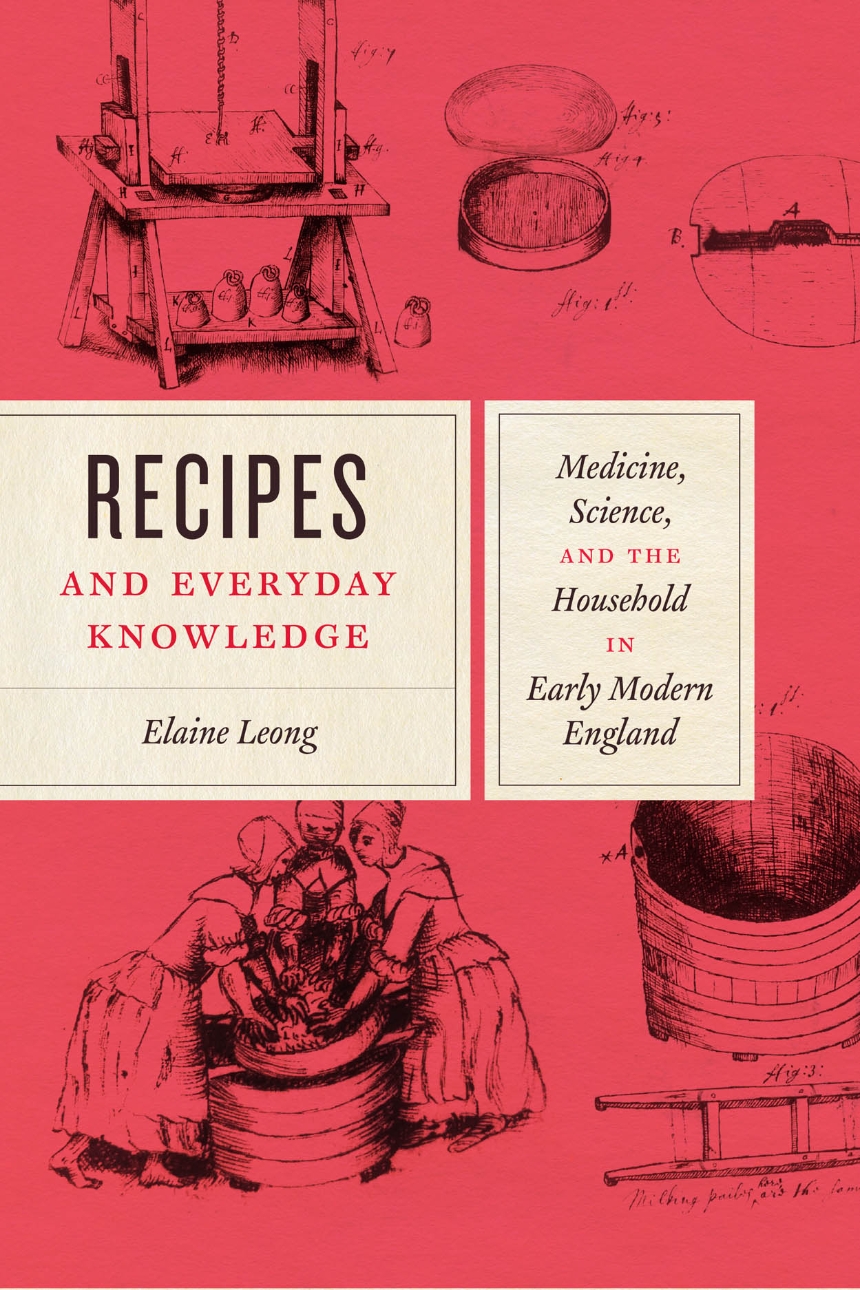Recipes and Everyday Knowledge
Medicine, Science, and the Household in Early Modern England
9780226583662
9780226583525
Recipes and Everyday Knowledge
Medicine, Science, and the Household in Early Modern England
Across early modern Europe, men and women from all ranks gathered medical, culinary, and food preservation recipes from family and friends, experts and practitioners, and a wide array of printed materials. Recipes were tested, assessed, and modified by teams of householders, including masters and servants, husbands and wives, mothers and daughters, and fathers and sons. This much-sought know-how was written into notebooks of various shapes and sizes forming “treasuries for health,” each personalized to suit the whims and needs of individual communities.
In Recipes and Everyday Knowledge, Elaine Leong situates recipe knowledge and practices among larger questions of gender and cultural history, the history of the printed word, and the history of science, medicine, and technology. The production of recipes and recipe books, she argues, were at the heart of quotidian investigations of the natural world or “household science”. She shows how English homes acted as vibrant spaces for knowledge making and transmission, and explores how recipe trials allowed householders to gain deeper understandings of sickness and health, of the human body, and of natural and human-built processes. By recovering this story, Leong extends the parameters of natural inquiry and productively widens the cast of historical characters participating in and contributing to early modern science.
In Recipes and Everyday Knowledge, Elaine Leong situates recipe knowledge and practices among larger questions of gender and cultural history, the history of the printed word, and the history of science, medicine, and technology. The production of recipes and recipe books, she argues, were at the heart of quotidian investigations of the natural world or “household science”. She shows how English homes acted as vibrant spaces for knowledge making and transmission, and explores how recipe trials allowed householders to gain deeper understandings of sickness and health, of the human body, and of natural and human-built processes. By recovering this story, Leong extends the parameters of natural inquiry and productively widens the cast of historical characters participating in and contributing to early modern science.
Reviews
Table of Contents
Abbreviations
Introduction: Recipes, Households, and Everyday Knowledge
Chapter 1. Making Recipe Books in Early Modern England: Material Practices and the Social Production of Knowledge
Chapter 2. Managing Health and Household from Afar
Chapter 3. Collecting Recipes Step-by-Step
Chapter 4. Recipe Trials in the Early Modern Household
Chapter 5. Writing the Family Archive: Recipes and the Paperwork of Kinship
Chapter 6. Recipes for Sale: Intersections between Manuscript and Print Cultures
Conclusion: Recipes Beyond the Household
Acknowledgments
Notes
Bibliography
Index
Introduction: Recipes, Households, and Everyday Knowledge
Chapter 1. Making Recipe Books in Early Modern England: Material Practices and the Social Production of Knowledge
Chapter 2. Managing Health and Household from Afar
Chapter 3. Collecting Recipes Step-by-Step
Chapter 4. Recipe Trials in the Early Modern Household
Chapter 5. Writing the Family Archive: Recipes and the Paperwork of Kinship
Chapter 6. Recipes for Sale: Intersections between Manuscript and Print Cultures
Conclusion: Recipes Beyond the Household
Acknowledgments
Notes
Bibliography
Index
Awards
History of Science Society: Margaret W. Rossiter History of Women in Science Prize
Won
History of Science Society: Pfizer Award
Short Listed
